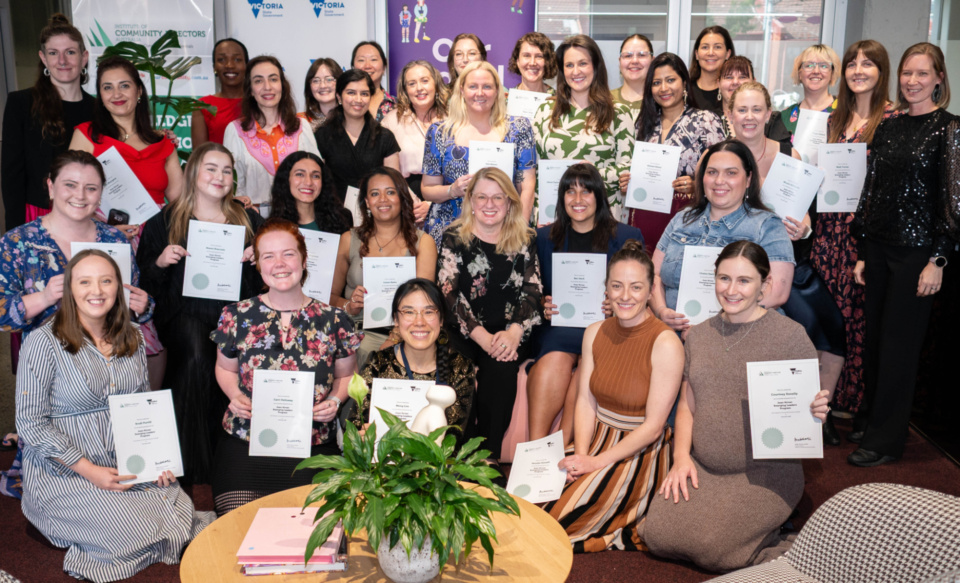
What not-for-profit leaders need to know in 2026
Posted on 12 Feb 2026
Our special NFP trends report distils the views of more than two dozen experts.
Posted on 12 Mar 2025
By Matthew Schulz, journalist, Institute of Community Directors Australia

A foremost expert in helping not-for-profits build better connections with government decision makers says that leaders can create a massive impact with the right strategy and tactics.
Angus Crowther, co-founder of Tanck, says his organisation – which equips organisations with the skills to increase their influence – believes not-for-profits are better served by building their capabilities in-house, rather than calling in lobbyists with their own agendas.

Tanck’s method involves helping organisations to:
According to the Tanck method of engagement, opportunities that come with good government relations include:
While accepting that good government relations can be hard to establish, that they require time and effort, and that government processes can be opaque, Tanck holds that it is possible for NFPs to build an effective goverment relations strategy.
In short, its approach calls for a five-step solution involving:
The Tanck whitepaper How NFPs Should Engage with Government suggests a structured approach to engagement involving a strategic engagment plan, a map of key stakeholders, carefully framed messaging, and effective uses of events and social media.
Speaking to the Institute of Community Directors Australia recently, Angus Crowther said his organisation framed its work as “government engagement” for good reason.
“We're very specifically using that term, as opposed to strategic communications, or corporate affairs, or government relations, or lobbying,” said Crowther, a highly experienced former political advisor
“We see government engagement as an alternative to these models that's more sustainable and more aligned from a values perspective with the social sector in particular.”
He said government engagement objectives for social sector organisations, as developed by boards and senior leadership, typically revolved around issues such as funding needs, government policies and legislative changes.
From there, an organisation must develop a clear process that will help it achieve those outcomes.
“It's how do we actually help you get a seat at the table? How do we broaden your participation and your influence with the stakeholders that matter to you, to your sector and to your mission and cause?”

“It’s about building political will and convincing these people [politicians] to invest in your programs."
Often, social sector organisations were keen to improve their negotiating position with departments or ministers, yet were afraid of “stepping on toes”, and as a result hesitated to knock on ministerial doors.
He said one goal worth pursuing was flipping the relationship and seeking to be positioned as a “trusted advisor” to unlock more favourable policy outcomes.
“For me, what it looks like in genuine terms is how do we position it so that if there's a policy decision that's coming down the line, the advisor and the minister's office pick up their phone and call you and say, ‘Hey, what if let's say hypothetically this thing is happening, what would be your response?’”
Another recent Tanck whitepaper, Engaging for Impact: Best practices for purpose-driven government engagement, outlined the top five obstacles for organisations struggling to make an impact.
These include:
Mr Crowther said not-for-profits could apply Tanck’s concepts to dealing with the lead up to elections.
“There is money that is deliberately put aside so that MPs have a little war chest that they’re allowed to play with on an electorate basis, to help them win that seat so that their party can win government,” said Mr Crowther.
“Sector organisations should be looking at what it is that they need and make a case through approaching an MP, knowing that going into an election that MP is going to have a pool of money that they can draw upon to make election commitments.”
He said the vast amounts of money held back by governments could potentially be tapped by NFPs and charities who do their research, ask the right questions and can demonstrate the impact their programs have at a local electorate level.
This means that the federal Budget isn’t the “be all and end all” for NFPs, who have until the federal election to plead their case.
“I tell my social sector clients, don’t believe this line that there’s no money in the budget for you,” said Mr Crowther.
“It’s about building political will and convincing these people [politicians] to invest in your programs.”
Free Tanck whitepapers: Engaging for Impact: Best practices for purpose-driven government engagement | How NFPs should engage with government

Posted on 12 Feb 2026
Our special NFP trends report distils the views of more than two dozen experts.

Posted on 10 Feb 2026
As my family dropped our teenage son off at the airport in the first week of January to embark on a…

Posted on 11 Dec 2025
Community Directors trainer Jon Staley knows from first-hand experience the cost of ignoring…

Posted on 10 Dec 2025
As a qualified yoga instructor who learned the practice in her hometown of Mumbai, Ruhee Meghani…

Posted on 10 Dec 2025
Anyone working in an organisation knows it: meetings follow one after another at a frantic pace. On…

Posted on 10 Dec 2025
Stressed, overwhelmed, exhausted… if you’re on a not-for-profit board and these words sound…

Posted on 10 Dec 2025
The Institute of Community Directors Australia trains over 22,000 people each year, which gives us…

Posted on 03 Dec 2025
Many not-for-profit (NFP) board members in Australia are burnt out, overwhelmed and considering…

Posted on 26 Nov 2025
A roll call of Victoria’s brightest future leaders has graduated from a testing and inspiring…

Posted on 12 Nov 2025
At the Institute of Community Directors Australia, we believe that stronger communities make a…

Posted on 12 Nov 2025
Like many Community Directors members, Hazel Westbury is a community leader who isn’t easily…

Posted on 11 Nov 2025
I’ve seen what happens when fear of conflict wins out over taking a principled stand.